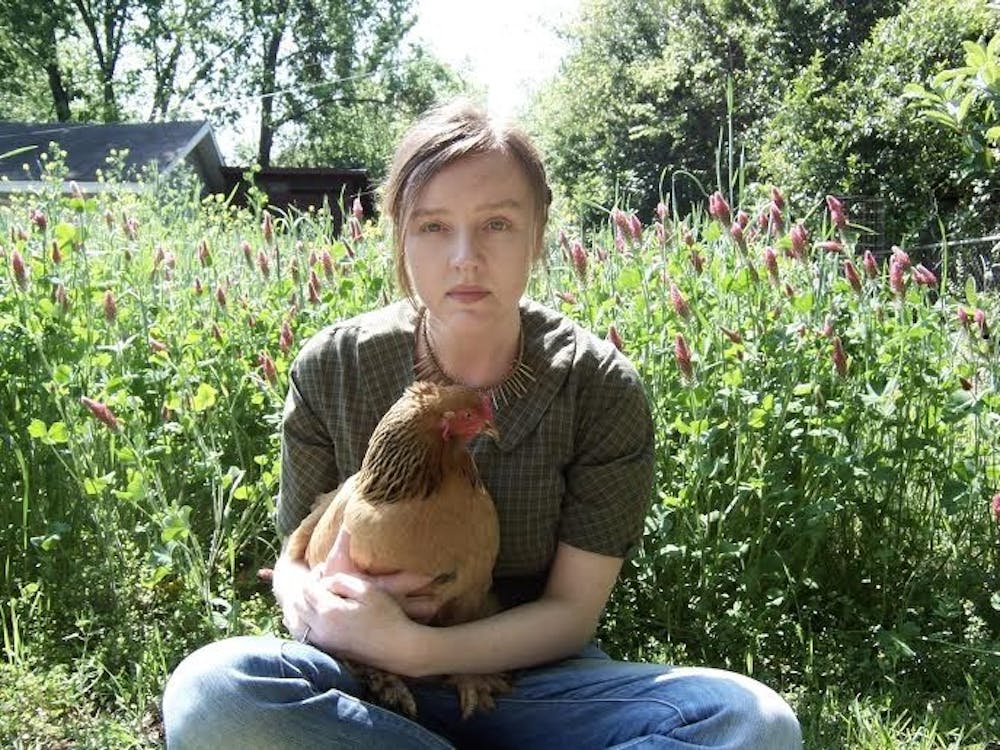The future is now. Or at least so it seems to the readers of Julia Elliott’s recently published novel, “The New and Improved Romie Futch,” released Oct. 1.
The book centers around a South Carolinian taxidermist who, as a result of his participation in a research study, has a knowledge of the humanities subjects downloaded into his brain by “scientists.” This knowledge increase creates a “new and improved” Romie Futch — a man determined to transform his occupation and his failing marriage.
The novelist, USC English and Women’s and Gender Studies professor Julia Elliott, combines Southern Gothic, satire and surrealism genres in a comically serious tale about the not-so-distant future.
“Although this is a satirical comic novel constructed to entertain, I hope it examines serious subjects,” Elliott said in an email. “Like the effects of technology on human identity and the environment, planet-wide ecological degradation, the commodification of higher education and the excesses of the university-industrial complex, the dangers and possible perks of biotechnical research, the effects of genetically modified organism on the ‘natural’ world, and more!”
Dealing in turn with many scientific and futuristic themes, “The New and Improved Romie Futch” certainly covers a large amount of ground in its 416 pages — pages that were inspired by a classroom here at USC.
“When I was teaching an honors section of English 102 on ‘dystopian lit’ at USC, I’d bring in a ‘fake fact’ and a ‘real fact’ about technology each day, each of which seemed futuristic. During this time, I came across a lot of articles about human brain development and the possibility of ‘downloading’ information directly into the brain,” Elliott said. “Instead of exploring this idea in a ‘serious’ dystopian novel, I took a comic satirical approach, imagining what would happen if a down-and-out alcoholic taxidermist from South Carolina got a PhD’s worth of humanity's education downloaded into his brain in less than a month’s time.”
Elliott not only used her classroom as a springboard for the new book, but she also wrote a novel that includes college students in the wide pool of readers that will identify with the story of taxidermist Romie Futch.
“I think college students will relate to Romie’s experience with education via enhancement technologies, possibly by considering new pedagogical approaches like online classes and how they have changed the way college students learn,” Elliott said. “I’d love to know how many USC students would prefer the ‘brain-download’ version of a class to the traditional classroom and what kinds of qualms they might have about signing up for ‘biological artificial intelligence transmissions.”
The concept of “biological artificial intelligence transmissions” is certainly one to think about, and reading “The New and Improved Romie Futch” will allow college students to explore the unseen sides of effortless, “brain-download” educations.

